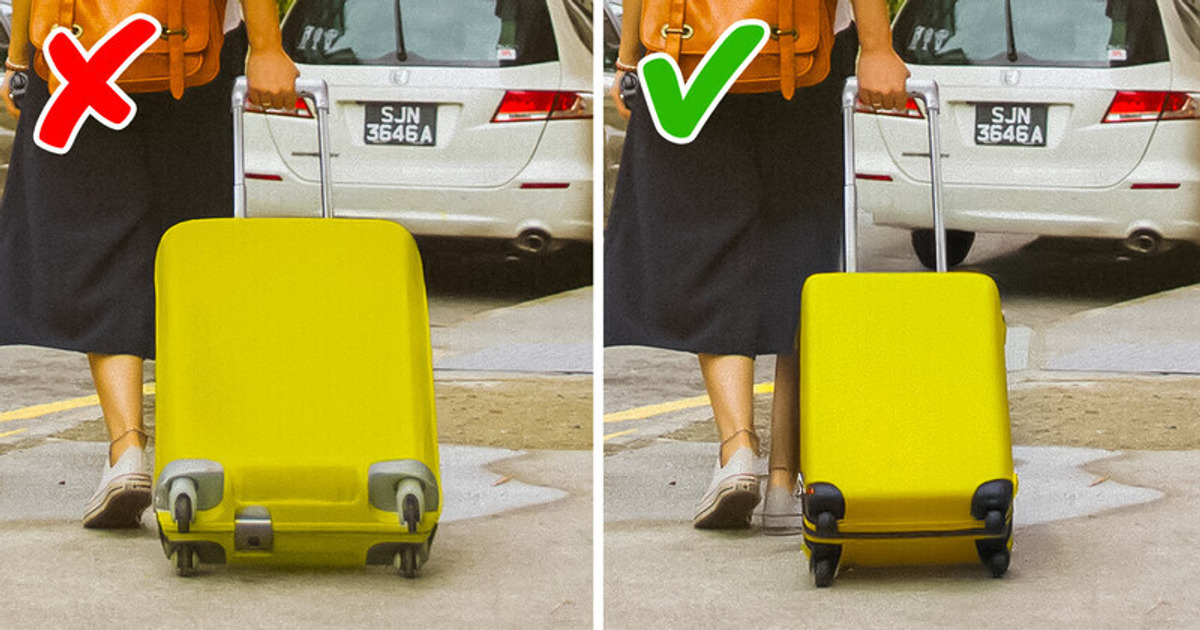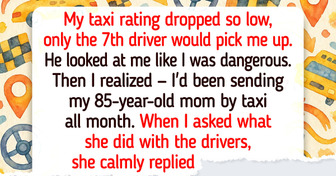10 Times Flight Attendants Proved They're Full of Surprises


Travelers worldwide are projected to spend over $2.4 trillion by 2025, and people over the age of 40 are largely to 'blame' for this. Unfortunately, older adults are often targeted by thieves and pickpocketers while having to deal with health issues and other complications. That's why we gathered 9 safety measures you may want to implement next time you leave your country.
Thieves and pickpockets often target people of all ages, especially older adults. Maybe they think that it's easier to steal from them as their reflexes are slower, and their eyesight may be weaker. If you want to protect yourself against this heartbreak, you can wear clothes with protective pockets. Many jackets have inside pockets or pockets that feature zippers or are magnetically sealed.
Additionally, make sure your hotel room has a safe where you can keep your identification and other important documents and some extra cash.
You don't need to pack your entire medicine cabinet when you travel abroad. Depending on your health requirements, medication, and allergies, you may pack a small emergency kit with just the necessary items. Also, add your emergency contact information in your kit in case something extreme happens and someone has to call them.
For example, an EpiPen may be crucial if you have allergies or even a list of which medication does what. Someone may need to give you a certain pill if you can't direct them to do it.
Deep-vain thrombosis (DVP) happens more often than you'd think to older adults. It's basically when the blood inside your veins clots and becomes black. To avoid this extremely unfortunate event, you should talk to your physician about ways to prevent it. We can safety say that compression stockings are a wonderful and safe solution, as they apply pressure and send blood to your heart.
Additionally, you may take frequent breaks from sitting so the blood in your feet circulates. Move as much as you can, but take small breaks during the day.
Not everywhere you go is accessible for people who have limited mobility or certain issues. You may check a series of things before venturing onto your next trip. For starters, call the airline and make necessary arrangements so you can safely and comfortably enter and exit the airplane. Then, call your hotel before you book a room to ask whether they have elevators and ramps.
If you need to bring medical equipment with you, ask the airport and airline what their requirements are. You may also have to check the voltage required for your assistive devices.
Let's be real. Traveling on public buses, trains, and airplanes can be one of the dirtiest experiences. And while being on these, you may need to eat or touch your face. Don't do any of that unless you wash your hands with running water and soap or sanitize them using an alcohol-based sanitizer.
Moreover, depending on the country you're visiting, ask for advice depending on the food and water conditions. For example, some countries have very unhygienic water, and you must always drink bottled water to stay safe.
If you already have health insurance, check to see whether they cover any medical expenses overseas. Most companies don't offer these sorts of advantages, meaning that you may need to book insurance through your travel provider. Medical evaluation insurance covers emergency transportation from remote locations to big hospitals.
Also, you have the option of travel health insurance, which covers most medical needs, including chronic condition treatments. This is also useful if you plan on taking part in extreme activities, like bungee jumping. Lastly, you may book trip cancellation insurance.
Where do you pack your medication? Is it in your carry-on suitcase, your check-in luggage, or your personal bag? If the answer is in any of the first two, you should reconsider your decision. Your medication should always be easily accessible.
So, pack it in a bag you will have under the front seat of the airplane so you can quickly grab it in case of an emergency. If you have liquid medication, put it in 100ml bottles.
Free Wi-Fi may seem like a blessing, but not all access points are safe. Using your hotel's Wi-Fi may be okay, but don't use just any public network you find accessible. Even if you have to use it for a moment, avoid making bank transactions or accessing private documents. Someone may be watching over you, waiting for you to make the wrong move and steal your private details.
Instead, use your phone's data to surf the web. Contact your phone provider before leaving and ask them what settings you must make to be able to use data internationally.
If you are an older adult traveling domestically, pack only necessary items in a small suitcase you can easily put in the overhead compartment of the airplane. Avoid using heavy bags that may cause lifting injuries. If you have trouble lifting your suitcase, ask someone to help you.
If you are traveling internationally, and you need to pack heavy, make sure to add valuable items to your carry-on in case your checked baggage gets lost.
Traveling is one of the most loved and popular activities for people around the globe, but sometimes, things don't go as planned. For example, this woman refused to travel with her boyfriend when he booked economy tickets for her children instead of first class.











